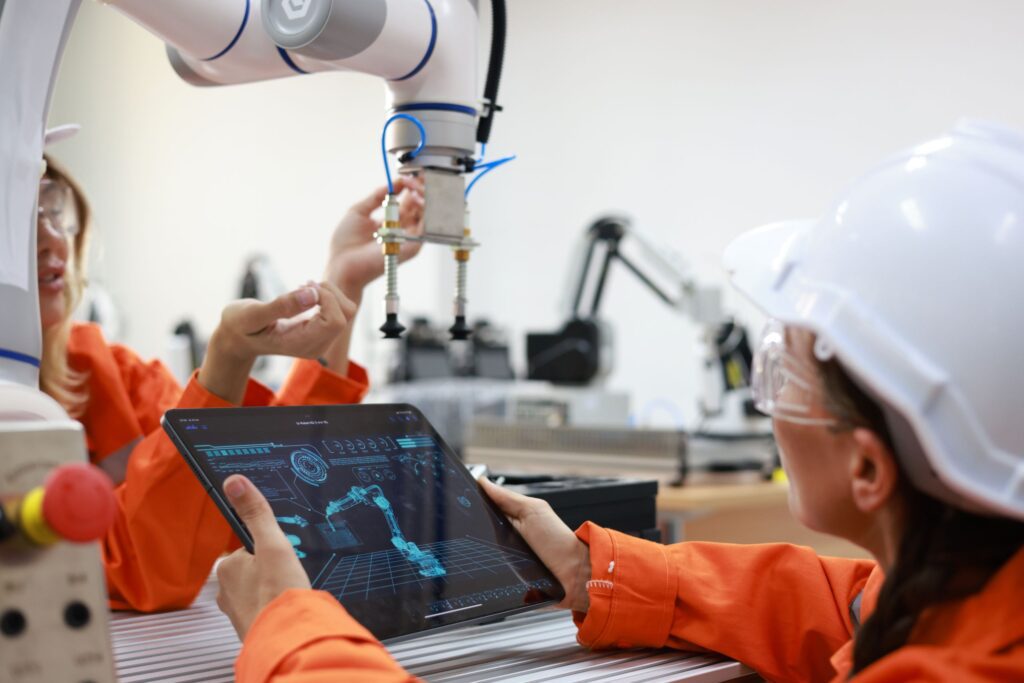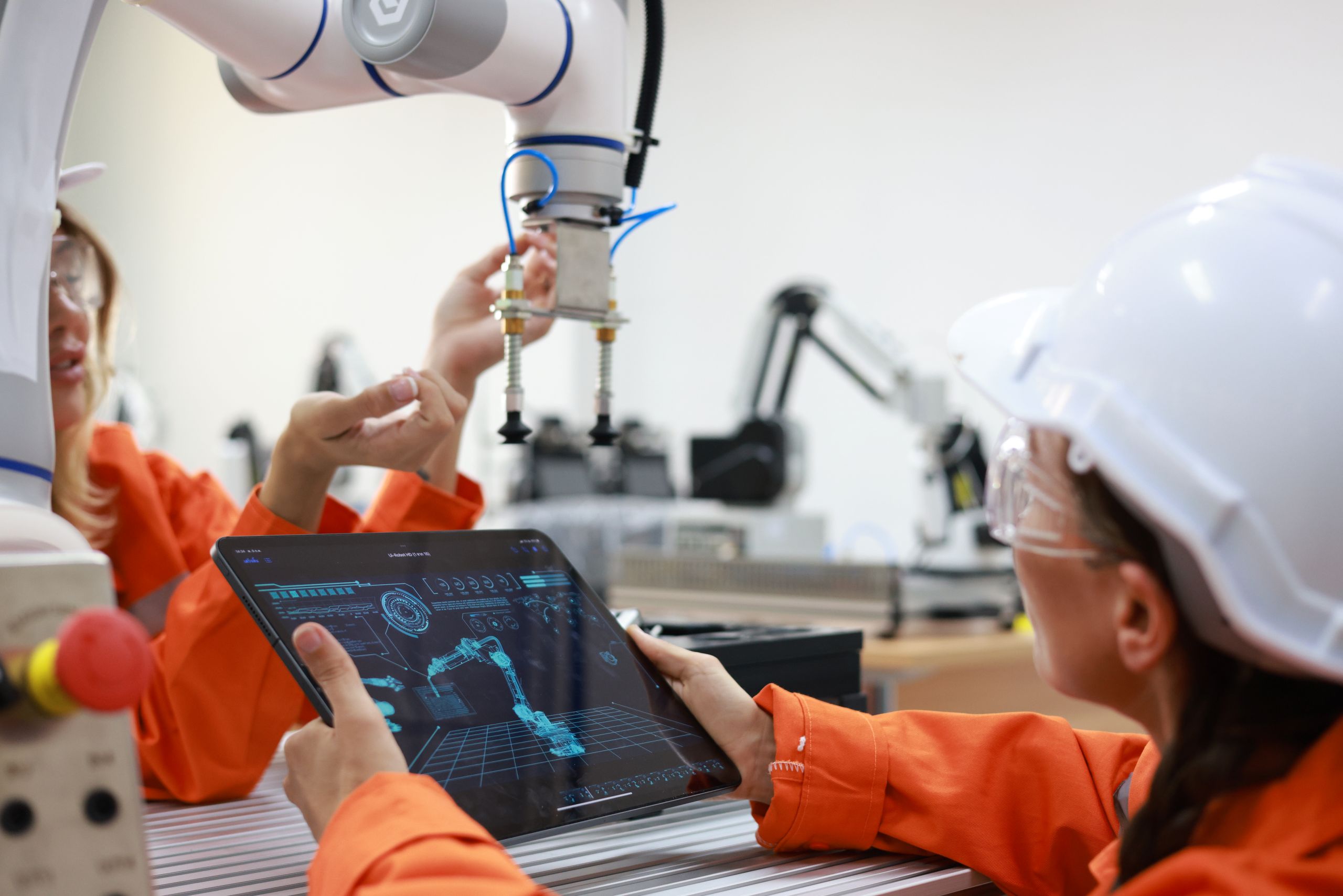Micro-certifications
Industry 4.0
Industry 4.0 refers to the digital transformation of manufacturing processes through the Internet of Things, artificial intelligence, and automation. A 60-hour training program is proposed to develop skills in automation, data analysis, and digital transformation, inspired by courses offered by other Canadian colleges.

Understanding the program
Program description
Industry 4.0 refers to the fourth industrial revolution, characterized by the integration of digital technologies into manufacturing processes. It leverages the Internet of Things (IoT), artificial intelligence (AI), automation, and cyber-physical systems to optimize production, enhance decision-making, and increase efficiency. With these advancements, smart factories can adjust their operations in real time based on collected data.
Proposed Structure for a 60-Hour Asynchronous Course on Industry 4.0: Key Modules
This course structure is based on descriptions from Industry 4.0 programs offered at Canadian colleges. Each module focuses on key technologies and skills necessary for success in the field.
Objective: Introduce the fundamental concepts of Industry 4.0, its flagship technologies, and their impact on industrial environments.
Content:
- Fundamentals: History of industrial revolutions, emergence of Industry 4.0
- Core technologies: Internet of Things (IoT), big data, artificial intelligence (AI), cyber-physical systems
- Industrial applications: Case studies on the adoption of these technologies to optimize processes
Justification: This module establishes a foundation for understanding this industrial revolution, particularly connectivity and automation concepts, and prepares students for the subsequent modules.
Objective: Enhance skills in industrial automation and the integration of intelligent systems.
Content:
- Industrial automation: PLC programming, robot integration, and production line automation
- Cyber-physical systems: Integration of physical systems with intelligent software and sensors
- Data analysis: Leveraging big data and AI for process optimization and predictive maintenance
Justification: Automation and intelligent systems integration are central to Industry 4.0 training programs. As these technologies shape the future of industrial production, this module is essential. The integration of robots and cyber-physical systems plays a key role in ensuring the efficiency and interconnectivity of modern factories.
Objective: Demonstrate how businesses apply Industry 4.0 technologies to optimize production, management, and supply chains.
Content:
- Operations and supply chain management: Enhancing production flow efficiency through automation and data analysis
- Digital transformation: Adoption of Industry 4.0 technologies to improve production and business management processes
- Case studies: Real-world examples of successful digital transformations across different industries (manufacturing, logistics, etc.)
Justification: This final module provides practical skills in integrating tools and technologies related to supply chain management and digital transformation. These skills are increasingly in demand as industries transition to Industry 4.0.
Summary of Themes and Justification:
Topics cover the essentials of training offered in Canadian colleges to facilitate the transition to Industry 4.0. They include the key skills for students and professionals seeking to adapt to this new industrial reality.
Industry 4.0
Is this program for you?

